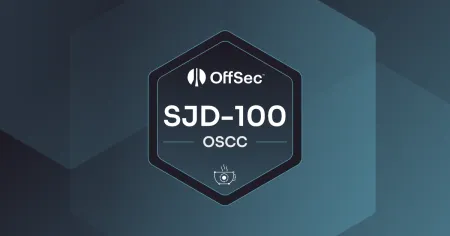Blog
Nov 19, 2024
How to Use Assessments for a Skills Gap Analysis
Discover how OffSec’s Learning Paths help organizations perform skills gap analyses, validate expertise, and strengthen cybersecurity teams.
4 min read

For many organizations, knowing the strengths and weaknesses of their cybersecurity teams is a blind spot. Without a clear understanding of what skills their professionals actually possess, it’s hard to say whether they have the right people in place to tackle emerging threats or protect critical assets. Each organization faces a unique set of challenges, shaped by its industry, the types of data it handles, and its exposure to different types of risks. As a result, the specific skills needed can vary widely—from red teaming and vulnerability management to cloud security and threat hunting. Yet, despite these differences, the common issue remains: how do you measure the capabilities of your team against the skills you truly need? This is where a skills gap analysis can bridge the divide, providing a structured way to assess existing knowledge, pinpoint critical gaps, and guide future training efforts.
A cybersecurity skills gap analysis is a strategic assessment process used by organizations to identify the disparity between the current capabilities of their cybersecurity workforce and the skills required to meet their security objectives. The analysis involves evaluating the existing skill sets of the team, defining the essential skills needed to handle current and emerging threats, and pinpointing where gaps or weaknesses exist.
Through a skills gap analysis, organizations can determine whether their cybersecurity professionals possess the necessary knowledge in areas like threat detection, incident response, threat intelligence, and network security. By understanding these gaps, companies can prioritize training and development efforts, plan for effective upskilling, and align their hiring strategies to address critical needs. This proactive approach helps organizations build a stronger, more capable cybersecurity team, ultimately reducing risk and enhancing resilience against cyber threats.
Skills assessments play a crucial role in performing a skills gap analysis by providing an objective and standardized way to measure the actual competencies of team members. Rather than relying on self-reported skills or generalized job titles, these assessments offer a concrete evaluation of what each individual can do, helping to cut through assumptions and surface real capabilities. They serve as a diagnostic tool, allowing organizations to see where their team’s strengths are concentrated and where they fall short.
When used effectively, skills assessments help map out the current skills landscape of a cybersecurity team against the specific needs of the organization. This process highlights gaps that may be limiting the team’s ability to respond to incidents, secure cloud environments, or manage vulnerabilities effectively. Armed with this information, leaders can make informed decisions about training, prioritize resources, and develop targeted upskilling programs tailored to bridge these gaps. In essence, skills assessments provide the evidence needed to build a focused and impactful talent development strategy, reducing risks and strengthening the organization’s overall security posture.
OffSec’s Learning Paths are designed to help organizations conduct detailed and data-driven skills gap analysis through practical, role-aligned training. While only a few Learning Paths include embedded skills assessments, completing 80% or more of any Learning Path earns learners a digital badge. These badges serve as a signal of mastery in a specific area and act as a skills assessment, providing clear evidence of capabilities. Here’s how OffSec’s badge system supports your organization:
- Comprehensive coverage: OffSec’s Learning Paths span 10 key cybersecurity job roles and 25 skills, ensuring learners develop the practical skills needed for diverse security functions while earning badges that reflect their expertise.
Job roles covered:- Cloud Engineer & DevSecOps
- Digital Forensics Analysts
- IT Generalist
- Incident Responder
- Malware Analysts
- Network Penetration Tester
- SOC Analyst
- Security Researcher
- Software Developer
- System Administrator
- Threat Hunter
- Vulnerability Analyst and Manager
- Web Application Tester
- Skill validation and recognition: The digital badges provide verified recognition of specific skills, offering both individual acknowledgment and a clear snapshot of team capabilities for organizational leaders.
- Informed decision-making: By analyzing the completion of Learning Paths and the badges earned, organizations can identify strengths and gaps within their teams, enabling strategic investments in targeted training and upskilling.
Through OffSec’s badge system, organizations gain a reliable way to assess and validate skills, helping to build a capable, well-rounded security team tailored to their unique needs.
Understanding your team’s skills can be a game changer in cybersecurity, where the right expertise makes all the difference. A well-executed skills gap analysis, supported by OffSec’s badge-based recognition system, provides a clear and objective picture of your team’s capabilities. By completing 80% or more of a Learning Path and earning a badge, team members demonstrate mastery of critical skills, giving organizations actionable insights into their strengths and areas for improvement. With this clarity, organizations can strategically direct training efforts, build more capable teams, and confidently prepare for the ever-evolving challenges of cybersecurity.
Stay in the know: Become an OffSec Insider
Get the latest updates about resources, events & promotions from OffSec!
Latest from OffSec

Research & Tutorials
CVE-2024-9956: Critical WebAuthentication Vulnerability in Google Chrome on Android
Discover CVE-2024-9956, a critical Chrome flaw on Android allowing Bluetooth-based PassKey theft, and learn key mitigation strategies.
Mar 26, 2025
3 min read

OffSec News
Learn Secure Java Development with OffSec’s New Course
Master secure Java coding with OffSec’s SJD-100 course. Enhance app security and gain hands-on experience to secure your coding practices.
Mar 18, 2025
4 min read

Insights
Creating an Inclusive Cybersecurity Culture
Transform your cybersecurity culture by strategically improving women’s representation and cultivating meaningful inclusion.
Mar 17, 2025
4 min read